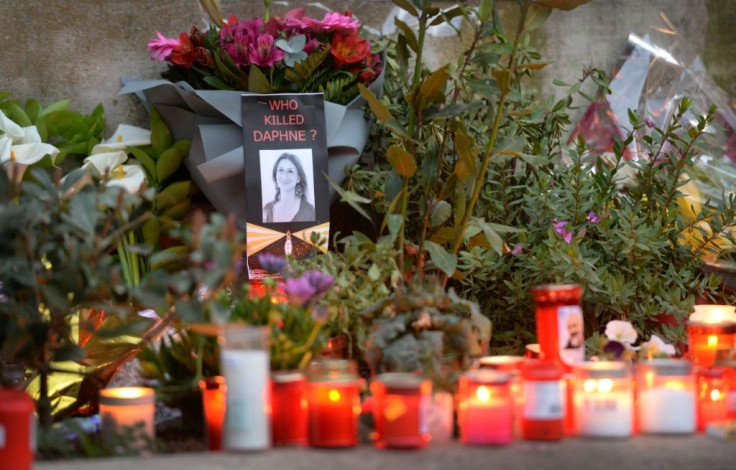Malta Urged To Drop Libel Suits Against Murdered Journalist

The Council of Europe's rights commissioner has urged Malta to drop libel suits against murdered journalist Daphne Caruana Galizia, according to a letter to the country's leader seen Thursday by AFP.
In her letter, dated September 12 to Prime Minister Joseph Muscat, commissioner Dunja Mijatovic said that when Caruana Galizia was killed in an October 2017 car bomb the journalist faced more than 40 civil and criminal defamation suits.
After her death, some 30 were transferred to her family under a Maltese civil law which allows plaintiffs to pursue actions against the heirs of a deceased accused.
"Firstly, I understand that in accordance with Maltese law, in defamation suits the burden of proof lies with the respondents," wrote Mijatovic.
While noting the laws on bringing a case against a defendant's estate, she voiced concern that "in the case of Daphne Caruana Galizia, this means that her heirs could be expected to reveal information on her journalistic work and sources.
"This is not only an excessive and very complex burden for the respondents but may also constitute an undue interference with the right to protection of journalistic sources," Mijatovic wrote.
Saying the cases placed "unwarranted psychological and financial pressure" on the reporter's family she added: "Continuing these claims –- many of which were lodged by public officials including yourself -– is not only perceived as an intimidation of a family faced with the loss of their loved one but also raises questions regarding the Maltese authorities' commitment to finding and bringing the masterminds of this horrendous crime to justice."
Caruana Galizia, described by supporters as a "one-woman WikiLeaks," had highlighted corruption in Maltese politics and Muscat was a frequent target, as was the country's opposition.
Muscat has insisted he will only drop his personal defamation cases if the journalist's family "accepts the findings" of an inquiry which he said exonerated him.
On Thursday he insisted the government "cannot interfere in, abolish or truncate civil actions".
Mijatovic went on to tell Muscat, who has said his government is committed to reforming libel laws, that such laws "put journalists and their families at risk and have a chilling effect on investigative journalism in particular.
"I urge your authorities to take measures to repeal these provisions which represent a real threat to journalistic freedom in your country," she concluded.
The Caruana Galizia family insisted it would "not succumb to blackmail", saying it did not have access to the full inquiry and could not comment on the findings.
"Our position on not accepting blackmail will never change," it said in a statement.
After Caruana Galizia's death, her sons called on Muscat to resign, accusing him of failing to uphold fundamental freedoms on the island, an EU member since 2004, and creating a culture of political impunity.
In July, three suspects arrested weeks after the bombing were sent for trial but it remains unclear who ordered the killing.
burs-ide/klm
© Copyright AFP 2024. All rights reserved.











